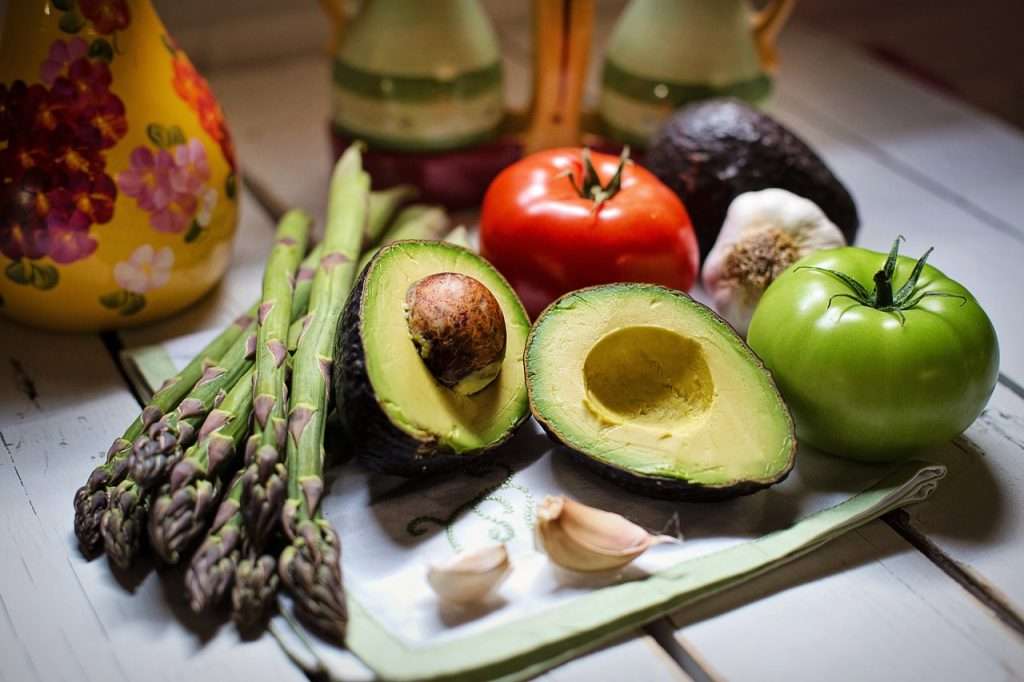Are you tired of being told that veganism is a healthy and ethical lifestyle choice? Sick of all those holier-than-thou vegans preaching about animal welfare and the environment? Well, fear not, my fellow meat-eaters, for let’s find out why nothing but big-fat veganism is a misconception.
What is Veganism?
First of all, what is Veganism? Veganism is the noble practice of abstaining from all animal products, including meat, dairy, eggs, and honey. Because, you know, it’s not enough to just be a regular vegetarian, you gotta take it to the extreme.
Vegans are known for their superior moral high ground, as they proudly proclaim their dietary choices to anyone within earshot. They’ll tell you all about how they’re saving the planet, saving the animals, and saving themselves from the evils of cholesterol and saturated fat by eating the foods of animals! All while conveniently ignoring the fact that their plant-based diet has its own set of problems.
But don’t worry, if you happen to slip up and accidentally eat a piece of cheese or put honey in your tea, they’ll be sure to shame you into submission. Because apparently, not adhering to their strict dietary rules makes you a terrible person who hates animals and the environment.
What is cultural aggression? How does it threaten world cultural diversity?
So, there you have it, veganism in all its self-righteous glory. But hey, at least they get to feel morally superior while they munch on their tofu and kale.
Are veganism and vegetarianism the same?
Oh, of course, they’re the same! Just like apples and oranges are the same because they’re both fruit, right? I mean, sure, they both involve not eating meat, but that’s where the similarities end.

Veganism is a lifestyle that avoids all animal products, including meat, dairy, eggs, and even honey. It’s about living a cruelty-free life and not exploiting animals for our own purposes. Vegetarianism, on the other hand, still allows for the consumption of dairy and eggs, which means that animals are still being exploited for their products.
But hey, who needs to pay attention to those differences? They’re both just people who don’t eat meat, so they must be the same! It’s not like there are any ethical or environmental reasons for choosing one over the other, right?
So yeah, go ahead and use the terms interchangeably. After all, it’s not like they have any meaningful distinctions or anything.
Why veganism is a misconception?
Looking to ruin your relationships with all your vegan friends and family members? Well, you’ve come to the right place. In this article, we’ll be discussing why veganism is nothing but a big, fat, hairy misconception. So, buckle up and get ready for some truth bombs that will surely have the tofu-eaters shaking in their Birkenstocks.
Monoculture farming practices
Many vegan products are made from crops like soybeans, which are often produced using monoculture farming practices. This involves planting large areas of land with a single crop, which can lead to soil depletion and erosion. In turn, this can result in water pollution and harm to aquatic ecosystems. According to Rainforest Rescue, an area of forest the size of 300 football fields is lost to palm oil farmers in Indonesia every hour.
How Sikkim became a part of India?
Deforestation
Veganism can also lead to habitat destruction, as land is cleared to make way for monoculture crops. This can have devastating effects on local ecosystems and biodiversity. For example, the production of palm oil, which is often used as a vegan alternative to dairy products, has been linked to deforestation in Indonesia and Malaysia, which threatens the survival of critically endangered species like the orangutan.
According to the WWF, soy is the second largest agricultural driver of global deforestation after beef; ‘from the United States to the Amazon, forests, grasslands, and wetlands are being plowed up to make room for more soy production.’
According to the Rainforest Foundation Norway, approximately 90% of the deforestation in Indonesia between 1990 and 2010 was due to the expansion of palm oil plantations. According to Rainforest Rescue, an area of forest the size of 300 football fields is lost to palm oil farmers in Indonesia every hour.
In another study published in the journal Environmental Research Letters, soybean production in the Amazon rainforest between 2006 and 2011 led to the loss of 2.6 million hectares of forest. Deforestation in the Amazon is also associated with increased levels of greenhouse gas emissions, as the trees that are cut down are no longer able to absorb carbon dioxide.
Water Depletion
And speaking of the environment, did you know that veganism is actually harmful to it? That’s right, all those vegans who think they’re saving the planet are actually doing the opposite. Monoculture farming practices used to grow vegan crops deplete the soil and require large amounts of water and pesticides. Many vegan products require large amounts of water to grow, particularly in areas where water is scarce.
Let’s call Israel’s violence what it is: terrorism, not clashes
Did you know that it takes over 2000 liters of water to produce just one pound of almonds and making a single glass of almond milk requires 74 liters of water? That’s more than your average shower. Rice milk is also very ‘thirsty,’ requiring 54 liters of water per glass.
The production of plant-based foods can also require large amounts of water. For example, according to the Water Footprint Network, it takes approximately 1,000 liters of water to produce one kilogram of tomatoes. In some regions, the demand for water to produce crops like almonds and avocados (which are popular among vegans) has led to water shortages and conflicts with local communities.
Avocados, whether smashed on toast or folded into a wrap, are another water-intensive crop. It’s difficult to quantify the avocado’s ‘water footprint,’ but some sources claim it takes 227 liters of water to grow a single avocado, while others claim 824 liters per kilogram.
Every year, nearly 3 million Olympic-sized swimming pools of water are used in avocado production around the world, resulting in some unexpected environmental consequences. Chile, for example, is currently experiencing severe droughts, which are thought to be caused by water diverted from rivers to avocado farms, while in Mexico, demand for avocados has led to illegal deforestation as more farmers seek to profit from these increasingly valuable crops.
Nutrient deficiencies
First of all, let’s talk about health. You may have heard that a vegan diet is the key to longevity and disease prevention, but that’s just a load of hogwash. Sure, plants provide some nutrients, but they lack many essential ones like vitamin B12 and omega-3 fatty acids. A vegan diet can be deficient in certain nutrients like vitamin B12, which can lead to anemia and nervous system damage. In addition, vegan diets can be low in protein, iron, calcium, and other essential nutrients.
According to a study published in the American Journal of Clinical Nutrition, vegans have a higher risk of developing bone fractures than non-vegans, due to the lower calcium intake in their diets.
And don’t even get me started on the risks of soy-based products. Did you know that consuming too much soy can lead to hormonal imbalances, thyroid problems, and even cancer? Yeah, let’s all go vegan and trade our steaks for a nice bowl of soybeans. Yum.
Killing animals is unethical but killing plants is ethical!
Plants have feelings too, don’t they? Oh, of course! Because plants don’t have feelings, right? They don’t scream in agony when they’re harvested or react to their environment in any way. Nope, they’re just mindless, soulless beings that exist solely for our consumption.
I mean, who cares if we rip them out of the ground or cut off their leaves? They’re just plants, after all. They don’t deserve the same consideration as animals, even though they’re also living beings with their own complex systems and ways of communicating with the world around them.
And let’s not forget about all the insects and small animals that are killed during the process of farming and harvesting those plants. But hey, as long as we’re not eating cows or pigs, it’s all good, right?
But wait, there’s more! Did you know that being vegan is actually unethical? That’s right, those vegans who claim to care about animal welfare are nothing but hypocrites.
Dictatorship and Human Rights: The Ongoing Struggle for Freedom
Seriously though, the idea that killing plants is somehow more ethical than killing animals is just ridiculous. It’s not about which life form is more “worthy” of our consideration, it’s about treating all living beings with respect and minimizing harm as much as possible.
They may not have eyes or ears, but they can sense when they’re being eaten, and they don’t like it. So why do vegans get a pass for killing plants but meat-eaters are vilified for eating animals? It’s a double standard, I tell you.
Veganism on Bee Populations and Ecosystems
Oh boy, where do I even begin with the impact of veganism on bee populations and ecosystems? You know, vegans are always preaching about how their plant-based diets are so much better for the environment. But little do they realize that their precious vegan foods are actually endangering one of the most important species on the planet: bees.
Yes, you heard that right. Bees are responsible for pollinating a significant portion of the crops that vegans consume on a daily basis. And yet, many of these same vegans are supporting monoculture farming practices that destroy bee habitats and cause bee populations to decline. Without bees, our entire ecosystem would be in jeopardy. But hey, who cares about the bees when you can have your tofu and kale, right?
And let’s not forget about the impact on the natural language. Bees are crucial pollinators that play a vital role in maintaining biodiversity and ensuring the reproduction of countless plant species. But by consuming vegan foods that contribute to the destruction of bee habitats, vegans are unwittingly contributing to the decline of natural language as we know it.
So next time you hear a vegan touting the virtues of their plant-based diet, remember the impact it has on our precious bee populations and the delicate ecosystems they support. Because in the end, the bees are the ones who truly matter, not the latest food fad.
Carbon Footprints
Let’s start with the issue of transportation. While veganism is often touted as a more environmentally friendly option than meat-eating, the production and transportation of plant-based foods can still have a significant carbon footprint.
You see, many vegan products are not grown locally but are instead shipped from far-off places. And what does that mean? Carbon emissions. That’s right, all those emissions from trucks, ships, and planes carrying those vegan products contribute to climate change. According to a study conducted by the University of Michigan, the transportation of food accounts for about 11% of greenhouse gas emissions associated with the US food system alone. So much for being an ethical and environmentally-conscious lifestyle choice, huh?
So, there you have it, folks. The truth about veganism is nothing but a big fat misconception based on false health claims, ethical hypocrisy, and environmental ignorance. So go ahead and enjoy that juicy steak guilt-free, knowing that you’re doing your part to save the planet. And don’t let those vegans guilt-trip you into thinking otherwise.
Friendly reminder
It’s easy to get carried away with our indulgences, whether it’s with food, drink, or anything else in life. But it’s important to remember that anything in excess can be harmful to both ourselves and the environment around us. This includes both plant-based and meat-based diets.
Is the USA a Leading Terrorist State?
If we consume too much of anything, it can lead to health problems such as obesity, heart disease, and other chronic illnesses. And let’s not forget the impact it can have on our environment. Excess consumption of meat can contribute to greenhouse gas emissions, deforestation, and water pollution, while over-consumption of plant-based foods can lead to soil depletion, habitat loss, and pesticide use.
The key is to find balance in our diets and to be mindful of our consumption habits. We can make choices that are better for our health and the environment by opting for locally-sourced, sustainably-grown produce and choosing leaner cuts of meat. By being mindful of our consumption, we can help ensure a healthier future for both ourselves and the planet we call home.















